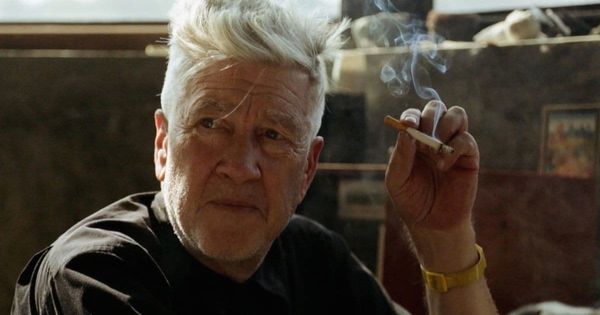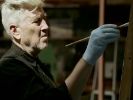Eye For Film >> Movies >> David Lynch: The Art Life (2016) Film Review
David Lynch: The Art Life
Reviewed by: Anne-Katrin Titze

From the "super happy household" of his childhood to the adolescent, curious boy falling in with a different crowd after the family moves, audiences likely can't help but connect incidences of the filmmaker's life told in David Lynch: The Art Life to his pictures. Although the world of his early childhood was no larger than two blocks, it contained it all.
Do you remember the name of the neighbour's child you used to play with in mud puddles? David Lynch does, and he recounts sitting in a hole under a tree with "little Dickie Smith", in Sandpoint, Idaho. His mother provided the water and, we can surmise, the artist was born. "It was great fun," he says, off camera. We see present-day Lynch making tactile artworks in his fabulous studio in the Hollywood Hills with the Pacific light coming in. "It was pulling fear out of me", he says of the California sunshine.

Lynch's account of his memories ends when his career as one of the world's greatest directors begins - with Eraserhead. We get to watch Lynch work on a sculpture, sit and smoke, or interact with his toddler daughter Lula in the present. Family photos and home movies light up the past. His mother refused to give little David colouring books, so as to not restrict his creativity. "She was warm but not demonstrative," he describes her.
Sight and sound, with a few carefully chosen exceptions, are not synchronised in this dazzling documentary by Jon Nguyen, Rick Barnes and Olivia Neergaard-Holm, who leave wonderfully grand room to form your own opinion. There is the traumatic, "otherworldly" childhood encounter with a naked woman on the street, which Lynch talks about while we see a big moth wanting to get out by the window. "You can live in one place and have everything," is his motto. Time seems to fold in on itself.
Lynch begins to talk about a neighbour, Mr. Smith, then pauses, takes a deep breath and says "I can't tell the story. I never talked to Mr. Smith, ever." Lynch scribbles something down on his yellow legal pad. The mystery remains and lives on in our own minds' monstrous alterations.
As a teenager, Lynch's view of his father is conflicted. From the man he looked up to, to becoming embarrassing, to shifting in his eyes to "super cool." Virginia, the state, "seemed like always night." His roommate and friend, and eventual longtime collaborator, Jack Fisk, encouraged him to come to Philadelphia, where Lynch studied art and became a father himself for the first time. It was a city of "thick, thick fear".
You can focus on Lynch's great hair or his relationship to people, whom he preferred to keep separate. "There's always a nervousness going out," he says and tells the story of how he left a Bob Dylan concert once, causing a big fight with another roommate who disapproved of anyone leaving a Dylan performance. You relate, or you don't. If you do, a glimpse into a new corner of the cave opens up.
Reviewed on: 31 Mar 2017















